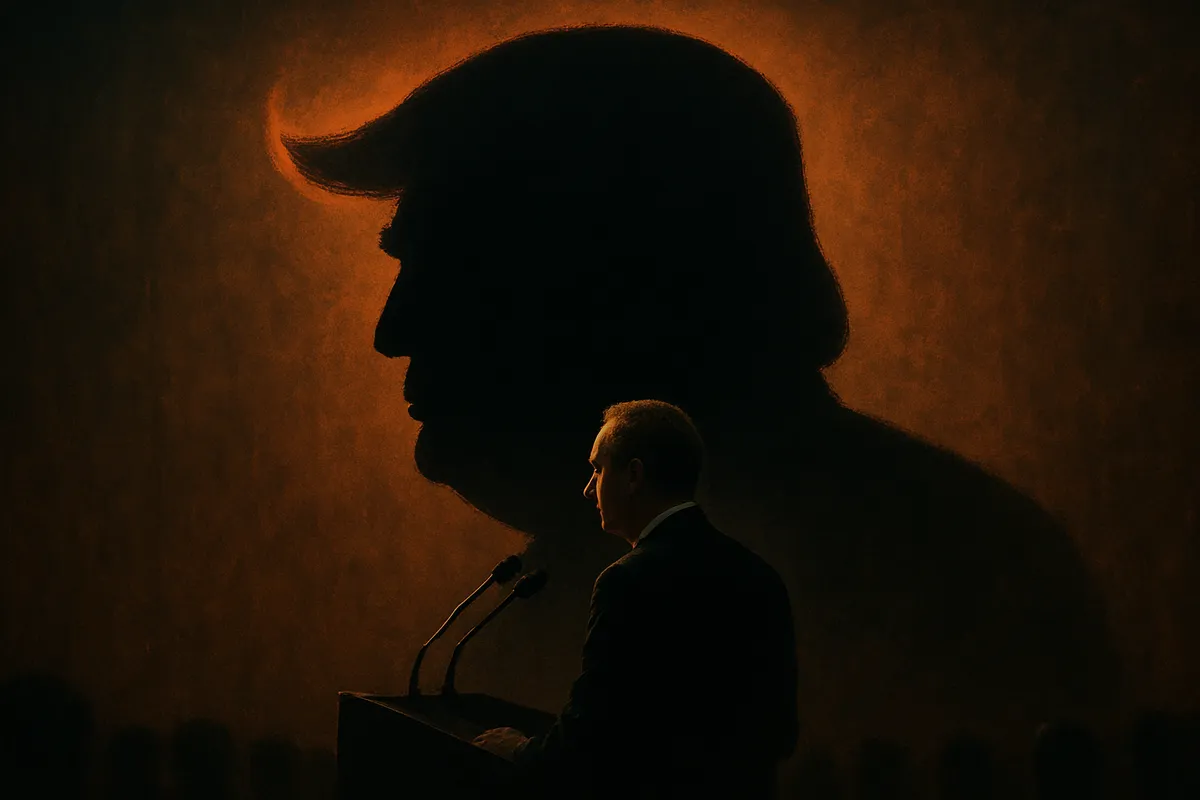The Trump Administration's Tylenol Doublethink
 When autism becomes the testing ground for truth control
When autism becomes the testing ground for truth control
This week, Health and Human Services Secretary Robert F. Kennedy Jr. stepped back from his and Donald Trump’s month-long crusade against Tylenol, saying there isn’t yet “sufficient evidence” that the medication causes autism. It sounded like moderation — but it was something else entirely: the rhetorical maneuver George Orwell warned about in 1984. The parallel arrives fast because it should; this isn’t new territory, just a familiar script running in real time.
The Calibration
Trump speaks in thunderclaps; Kennedy follows with footnotes. The contrast should sound jarring—chaos answering to calculation.
Trump set the stage in September with his trademark absolutism — “Don’t take it. Tough it out.” This week, Kennedy read the room and then moved in to soften the claim without retracting it, introducing ambiguity where certainty had been. That shift doesn’t cancel the original harm; it inoculates it. The rumor survives, now dressed in the language of caution. Trump even telegraphed the choreography last month, acknowledging, “Bobby wants to be very careful with what he says, and he should, but I’m not so careful.” It was open permission: Kennedy could partially retreat later without making Trump look wrong. The credibility exchange was deliberate.
Trump knows boundaries don’t apply to him. He can say anything, at any time, and the spectacle itself absorbs the blow. His political survival depends on chaos, not coherence. Kennedy, by contrast, operates inside a credibility economy he cannot fully control. His authority still hinges on the illusion of scientific seriousness. Trump is learning that his own impunity can’t be transferred; RFK Jr. can’t survive the way Trump does — by daring the world to stop him.
The Zealot’s Backdrop
What makes this moment remarkable is that Robert F. Kennedy Jr. doesn’t retreat. Ever. For two decades he has treated scientific consensus as conspiracy and autism as moral fable, weaving every new chemical or vaccine into his fixed narrative of betrayal. Even when debunked, he doubles down, recasting correction as censorship. The walk-back we just witnessed isn’t repentance — it’s choreography. The man who has never softened a single crusade did not suddenly discover nuance; he was granted a tactical pause when his conspiracy benefactor recognized the public mood. Trump handed him permission to step back just far enough to make fanaticism sound like responsibility. The performance depends on contrast: the zealot appears reasonable only beside the demagogue who went even further.
The 1984 Template
In 1984, power didn’t depend on silencing dissent but on redefining what counted as reasonable thought. Newspeak wasn’t censorship; it was linguistic compression. Once the frame is controlled, all positions within it serve the same master. Kennedy’s “not yet sufficient evidence” functions the same way: it marks conspiracy as prudence, not paranoia. The idea becomes too polite to challenge and too elastic to disprove.
The Autistic Collateral
This isn’t just political theater. The object of the performance is autistic life itself, and the consequences spill beyond rhetoric into policy — from funding priorities to how prenatal health warnings are framed. Each cycle of claim and retraction treats autistic people not as citizens but as symbols — the canvas onto which fears of contamination, purity, and pharmaceutical betrayal are projected. When truth itself is gamified, the people used to anchor it lose the right to speak for themselves.
The Real Harm
This is how misinformation survives refinement. It evolves, adapting to the tone of the room. What began as dehumanizing speculation — autism as something to fear, prevent or blame — returns wrapped in official ambiguity. That ambiguity is its camouflage. And when public trust breaks down, autistic people pay twice: once in stigma, again in policy built on suspicion instead of evidence.
The Replacement Truth
That’s how erasure survives — through the polite replacement of truth. The problem isn’t just that powerful men said reckless things about autism. It’s that the language used to walk those statements back proves how easily reality can be rewritten when autistic lives are treated as rhetorical property. The frame has been calibrated. The question is who will name it before the next cycle begins.